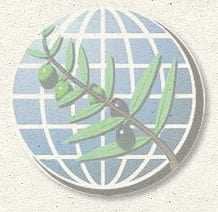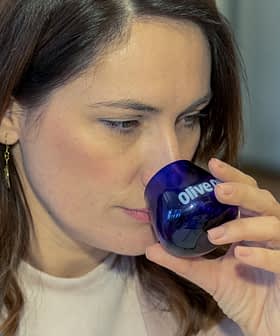 The need for more transparency in the olive oil market and for uniformity on olive oil tariff codes were among key issues discussed at the 99th session of the International Olive Council’s Council of Members, held at the IOC’s Madrid headquarters from November 21 – 25.
The need for more transparency in the olive oil market and for uniformity on olive oil tariff codes were among key issues discussed at the 99th session of the International Olive Council’s Council of Members, held at the IOC’s Madrid headquarters from November 21 – 25.
IOC Executive Director Jean-Louis Barjol said that actions in response to these issues would include a new data base of historical prices and a joint project with the World Customs Organization on the harmonization of tariff codes. As it stands, the WCO classifications vary from the IOC ones and do not differentiate between virgin extra and virgin olive oil.
Production down in Spain
Updated forecasts and definitive results on world olive oil production and consumption were also approved at the session and show a slight downward revision for Spain’s production for the 2011-12 crop year (1 October 2011 — 30 September 2012) to 1.35 million tons. Its provisional total for 2010-11 is 1.39 million tons.
Testing issues
Among the issues dealt with by the Council’s Technical Committee was the need to organize meetings with those who represent IOC member countries in the Codex Alimentarius Commission, specifically on the subject of dealing with olive oils with anomalous parameters.
The last Codex session, held in Malaysia in February, failed to achieve agreement on this issue. Argentina and Australia were among producer countries seeking changes to standards set for olive oils, such as on the level of linolenic acid, to reflect differences in non-Mediterranean olive oils.
An IOC spokeswoman said that the committee had also agreed to minor revisions of some IOC standards, including for the organoleptic assessment of virgin olive oils (COI T.20 Doc. nº 14 y 15) and to a method to determine the composition and content of sterols and triterpene dialcohols in olive oils. From 2013 the latter will also apply to pomace oil.
R & D projects
Barjol highlighted that the board had approved assistance for a third international olive harvest in Turkey and continued support for the second such harvest in Morocco.
Meanwhile, the Technical Committee also discussed an olive biomarker development project and the possibility of a future study of the carbon footprint throughout the olive oil production cycle, including developing methods to calculate carbon emission levels at each step of the process.
Promotional campaigns
One of the IOC’s next campaigns will be in Australia, North Korea or Japan but the IOC’s Promotion Committee is yet to choose. It will first evaluate recent reports received on the table olive and olive oil markets in the three countries. It noted the conclusion of a campaign in Russia, the extension of one in China, the continuation of its campaign in North America and a new campaign in Brazil.
Potential new IOC members
Barjol reported on his latest missions, in particular his visits in November to Argentina, Chile and Uruguay. He said the latter two countries had shown serious interest in becoming IOC members.








